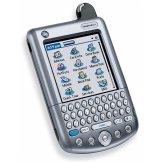About nutrition...
Below are a few excerpts from this fascinating webpage about how to improve your nutrition I stumbed across today. If you're sort of an absolute beginner at the age of 30 as I am myself, you really want to read this! ;)
Some of the most important nutrients are highly perishable fatty acids that occur in extremely small amounts, yet have vast repercussions in one's body. Commercial food preparers are unlikely to find it convenient to use fats that contain these highly perishable fatty acids in their products, so they will substitute fats with a longer "shelf life."
If I have eaten nothing and then eat a good orange, I get a sensation of sweetness. If I eat candies, and then eat the same orange, I get a sensation of sourness. My senses are relative, but my sensations are absolute. By omitting the candy, I would have experienced no sourness. In common language, candies cause sweetness. In reality, candies cause sourness.
Nutrition takes time. It takes time for every animal to get its food, prepare it, eat it, and clean up. We suffer from food inflation, in which food is plentiful, quick and easy to get, but unfortunately some necessary nutrients are in short supply.
XML vs. Relational Databases
Lately, I've seen quite a few people claiming XML to be the definitive way to store data, because it's supposed to be the most flexible format...
Others claim RDBMSes have been providing an efficient solution to data storage for years or decades and there was no need for something new.
This argument just doesn't make sense! XML and RDBMSes are two different solutions, both efficient... but solving two different problems!
Think about it. One tries to structure documents. The other one tries to structure relational but basicly tabular data.
Asking which of XML or an RDBMS is best, is like asking which of Word or Excel is best! :!: Best for what? :?:
I guess the whole confusion started when people started to use XML to exchange tabular data in the context of webservices. Don't get fooled: tabular data can temporatily be converted to a document (XML) when it must be transfered or exchanged, but there is still no reason to store it that way at one end or the other of that transmission...
PDAs: keyboards coming back!
All the first PDAs on the market had keyboards... Remember the Sharp organizers? The Psion Series 5?
Then some day, the Apple Newton and a little later the PalmPilot introduced a new form of input device: the stylus! Since then, virtually all PDAs adopted that form and the ones who didn't (like Psion)... eventually died! :(
The funny thing is that lately, the keyboard equipped devices seem to have started a massive come-back! Sony and Handspring were the first. Today PalmOne has a keyboard on half of their new models. And the Pocket PC powered (well the Windows Mobile 2003 powered) devices will probably follow shortly.
The reason for this trend is a shift in the PDAs main usage. A few years ago, PDAs were used nearly exclusively as a date book + an address book on steroids. But today, they are also used to edit complete Word or Excel files and more importantly: to communicate!
PDAs have become an efficient way to check and reply to email on the move, as advocated by RIM with the Blackberry. There is no way you can bear repeatedly writing emails without a keyboard!
As I said before, the survival of the PDA species is bound to developing real competitive advantages over the smartphones. The keyboard may be one of them... but again... Nokia has already thought about this issue [Link gone] twice!
Quote of the day: hiring aptitude
Joel on Software in The Guerrilla Guide to Interviewing:
"I've discovered that understanding pointers in C is not a skill, it's an aptitude."
Actually, the whole article contains lots of very interesting thoughts. A few examples:
"Our goal is to hire people with aptitude, not a particular skill set. Any skill set that people can bring to the job will be technologically obsolete in a couple of years, anyway, so it's better to hire people that are going to be able to learn any new technology rather than people who happen to know SQL programming right this minute."
"An important thing to remember about interviewing is this: it is much better to reject a good candidate than to accept a bad candidate."
checkdisk on Windows 2000
Every year or so, there comes a time where my W2K hard disk seems to fail in mysterious ways. Every time my reaction is the same: I desperately start searching the GUI for the disk checking tool. Damn it, where have they moved it in this version of Windows!?
It occurs to me that I have to learn this again and again: there is no GUI checkdisk in W2K (and this is most likely true for all 'NT' derivatives, XP etc...)
So this time I'm writing it down here, so maybe next year I will not have to rant at Windows for a couple of days before I find the answer!
You just gotta type this:
chkdsk d: /F /R
